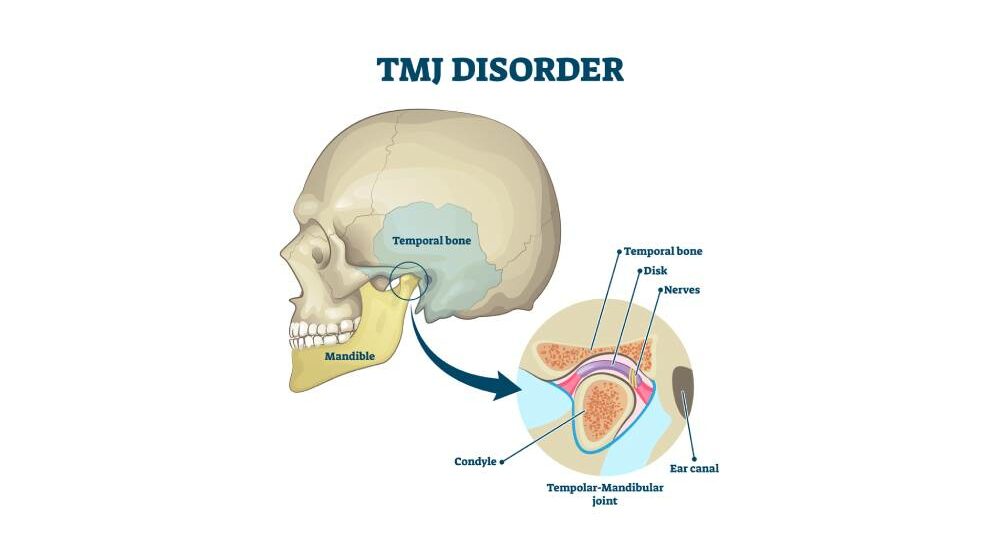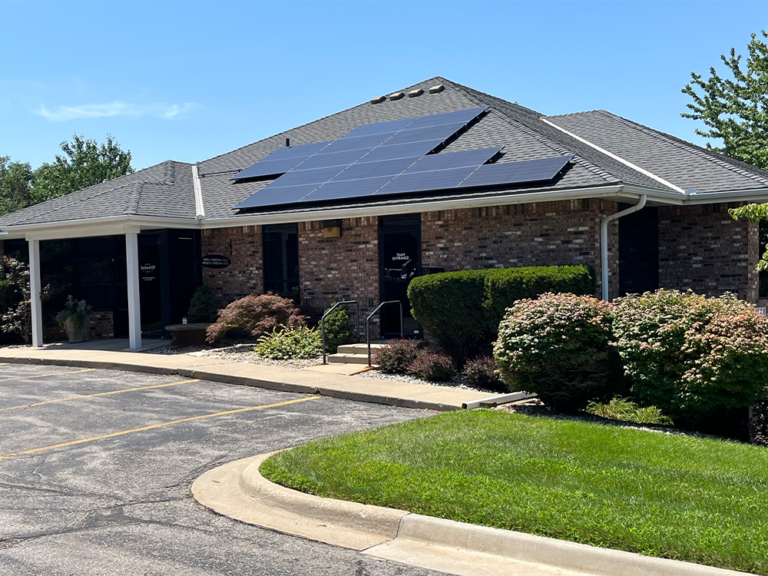TMJ Disorder Treatment
If you experience jaw pain, there are ways to diagnose and treat TMJ so you can live comfortably.
TMJ Treatment in Independence and Blue Springs, MO
Temporomandibular joint disorder, commonly known as TMJ disorder, affects the joints connecting your jawbone to your skull. When these joints are misaligned or damaged, they can cause pain and discomfort in your jaw and face, impacting everyday actions such as chewing, speaking, and yawning. TMJ disorder involves dysfunction or misalignment of the temporomandibular joints, leading to various symptoms and affecting your quality of life. Treating TMJ disorder involves various approaches depending on the severity of your condition.

-
What causes TMJ disorder?
Several factors can contribute to TMJ disorder, including:
- Jaw injuries: Trauma to the jaw or head can damage the joints.
- Arthritis: Various forms of arthritis can affect the temporomandibular joints.
- Teeth grinding: Clenching or grinding your teeth, especially at night, puts excessive pressure on the joints. Night guards can help with this.
- Stress: High-stress levels can lead to muscle tension and exacerbate TMJ symptoms.
-
How is TMJ disorder diagnosed?
At Kansas City Smiles & Co., our experienced team uses a combination of physical examinations, medical history reviews, and advanced imaging techniques to diagnose TMJ disorder. We will assess your jaw’s range of motion, listen for joint noises, and check for areas of discomfort or tenderness.
-
What are the symptoms of TMJ?
TMJ disorder can manifest in various ways. Common symptoms include:
- Jaw pain or tenderness
- Difficulty chewing or discomfort while eating
- Aching pain around your ear
- Clicking or popping sounds when you open your mouth
- Locking of the jaw, making it difficult to open or close your mouth
-
What are the treatment options for TMJ?
Our treatments include:
- Medications: Over-the-counter pain relievers, muscle relaxants, or anti-inflammatory drugs can help manage pain.
- Therapies: Physical therapy can be beneficial, including exercises to strengthen jaw muscles and improve flexibility.
- Night guards: Custom-made night guards can prevent teeth grinding during sleep, which helps reduce pressure on the joints.
- Lifestyle Changes: Stress management techniques and dietary adjustments can also alleviate symptoms.
- Surgery: In severe cases, surgical interventions may be necessary to repair or replace the joint.
-
Can TMJ disorder go away on its own?
Mild cases of TMJ disorder can sometimes improve without treatment. However, persistent or severe symptoms require professional care to prevent further complications.
-
How long does it take to treat TMJ disorder?
Treatment duration varies depending on the individual and the severity of the condition. Some patients may experience relief within weeks, while others may need ongoing management.
-
Are there any home remedies for TMJ disorder?
Yes, applying ice packs, eating soft foods, and practicing stress-relief techniques can help manage minor symptoms. However, it’s essential to consult a dentist for a comprehensive treatment plan.
Take the First Step Towards Relief
At Kansas City Smiles & Co., we are dedicated to helping you find relief from TMJ disorder. If you are experiencing symptoms, don’t hesitate to contact us for a consultation. Our expert team will work with you to develop a personalized treatment plan tailored to your needs. Contact us today to schedule your consultation.


